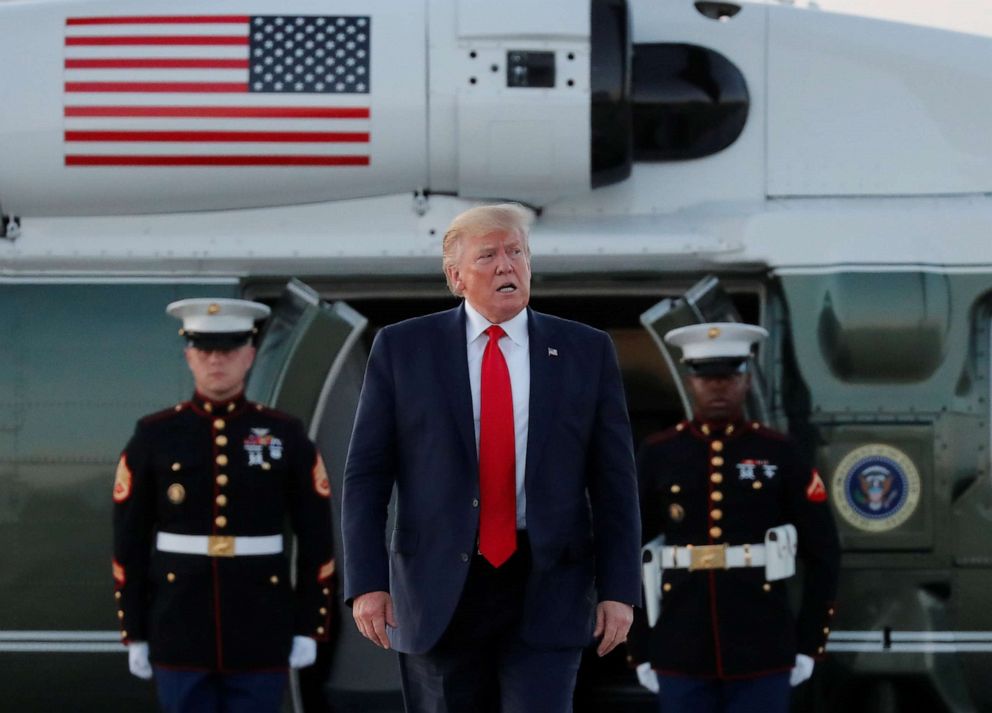How Trump has pushed the darkness of bigotry in America into the light: OPINION
It's a continuation of Trump stoking fears of "the other."
"Go back to where you came from!"
It's a statement my Irish ancestors were likely to have heard a number of times as they settled in America in the 1800s, and even into the 20th century as they continued to seek acceptance, pushing past name calling, discrimination and outright violence -- an experience Germans, Italians and other European immigrants felt as they dealt with the vitriol of nativists.
And throughout American history, up to today, it's something Asian Americans, African Americans, Latino Americans, Jews, Catholics, Muslims, Hindus and Buddhists hear as a cause of racism and hate from white nationalists.
Now, we have a president of the United States saying nearly the exact same statement to four women of color who are elected members of Congress -- three of whom were born in the United States. It seems the racism and bigotry that, for some, appeared to have receded into the darkness, has been pushed into the light again by the occupant of a White House built by slaves and immigrants.
The history of America includes many outstanding achievements and has been a beacon for the world from its founding, but let us also remember that at different moments when the demographic makeup of America started to substantially change, there has been pushback from folks who didn't like that change.
The power structure of America has been primarily filled by white, Christian men since the Declaration of Independence. And at each moment when people from outside that group asserted themselves into leadership, some members of the status quo became upset and tried to stop the inevitable needed change.
Today, as more women, people of color and citizens of different faiths or no religion have stepped into the halls of power, our leaders in office really have a choice in how to respond: they can see this change as a positive where diversity will make us better and welcome these new leaders, or they can appeal to people's fears, exacerbate divisions and try to pit citizen vs. citizen.
Unfortunately, President Donald Trump has chosen the latter strategy of division and not unity or expansion of how we see ourselves as Americans, and we are seeing the same bigotry that stained our country's history rise again.

From the day he came down the escalator at Trump Tower in New York in 2015 to announce his run for president and into his term as commander-in-chief, President Trump has pushed an agenda appealing to citizens' fear of "the other" and has used these appeals to divide our United States -- not only by ethnicity, but by faith, sex, orientation and geography.
It is a path that has given him some success in the short-term, but is foolish in the long term as America inevitably transforms how it looks.
Intertwined with all of this is a push to define the symbols of America (the flag and our national anthem) as somehow more important than the ideals of our democracy. One cannot honor the flag without standing up for the values upon which our nation was founded: equality for all, justice, the rule of law and freedoms for all Americans.
Athletes like Megan Rapinoe and Colin Kaepernick seem to understand those ideals and values far better than many in this administration. Rapinoe and Kaepernick also understand it is diversity and inclusion that make America great, not exclusion and trying to go back to a time of homogeneity.
The 2020 election is fundamentally not going to be about whether someone is a conservative or a progressive or a moderate. It is going to be about who we are as a country including the ideals of what has made America stand out in the world. And to quote a Broadway musical I loved, it should be more "Come From Away," and less "Go back to where you came from."
Matthew Dowd is an ABC News analyst and special correspondent. Opinions expressed in this column do not necessarily reflect the views of ABC News.




